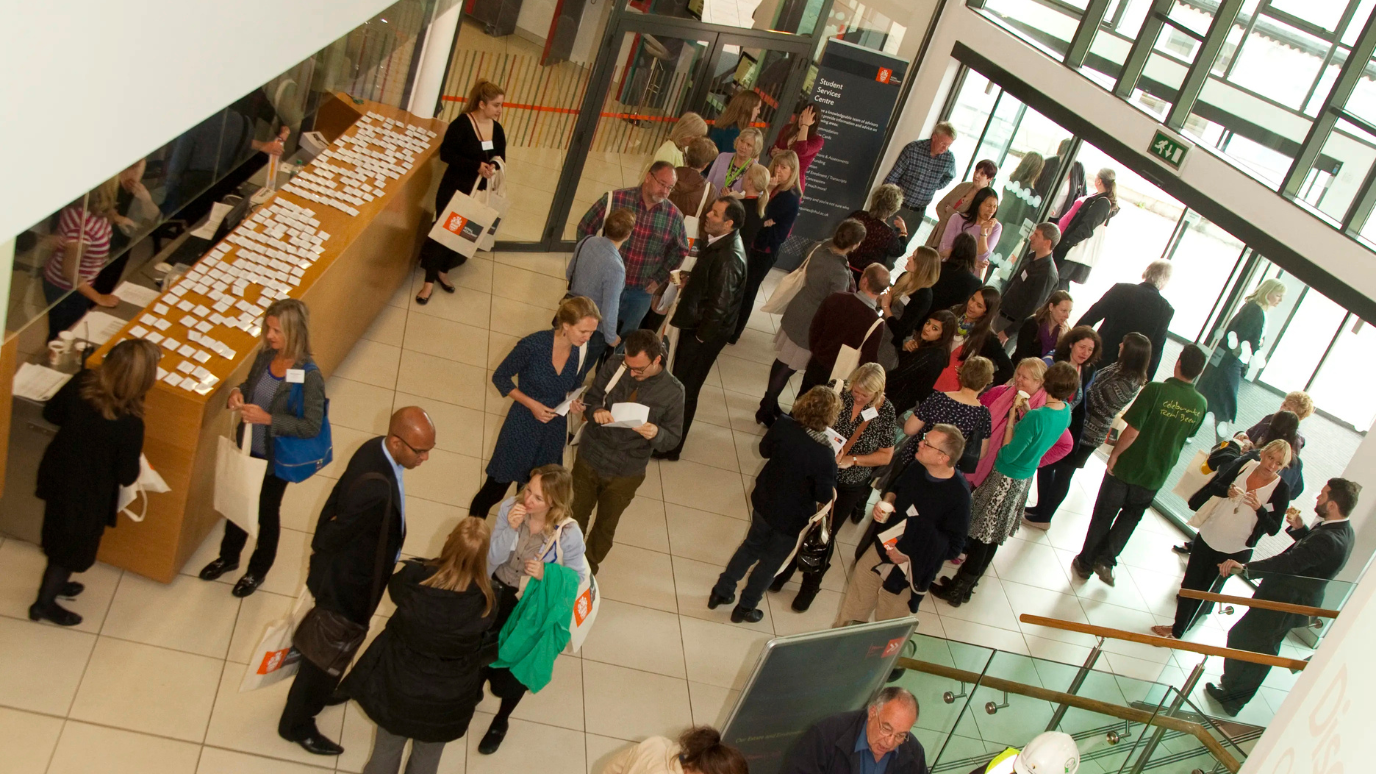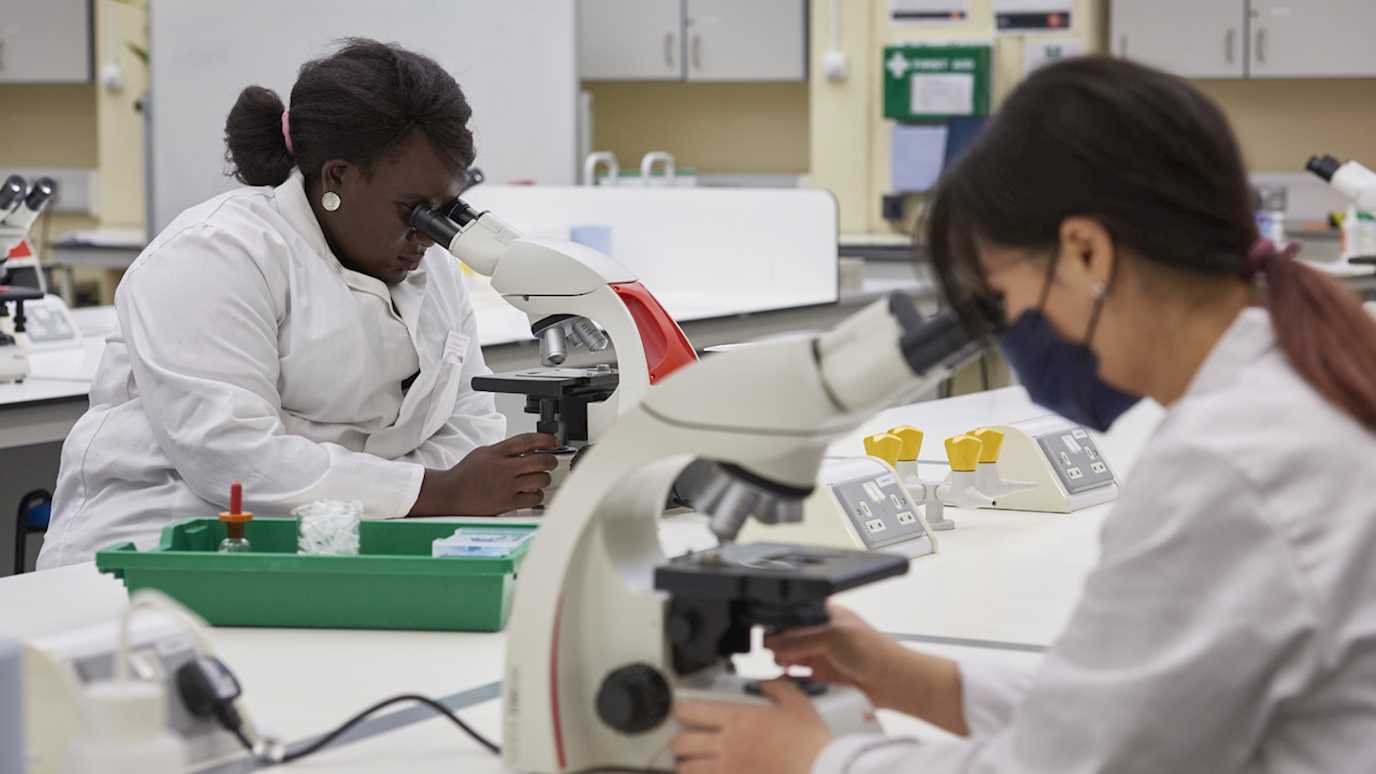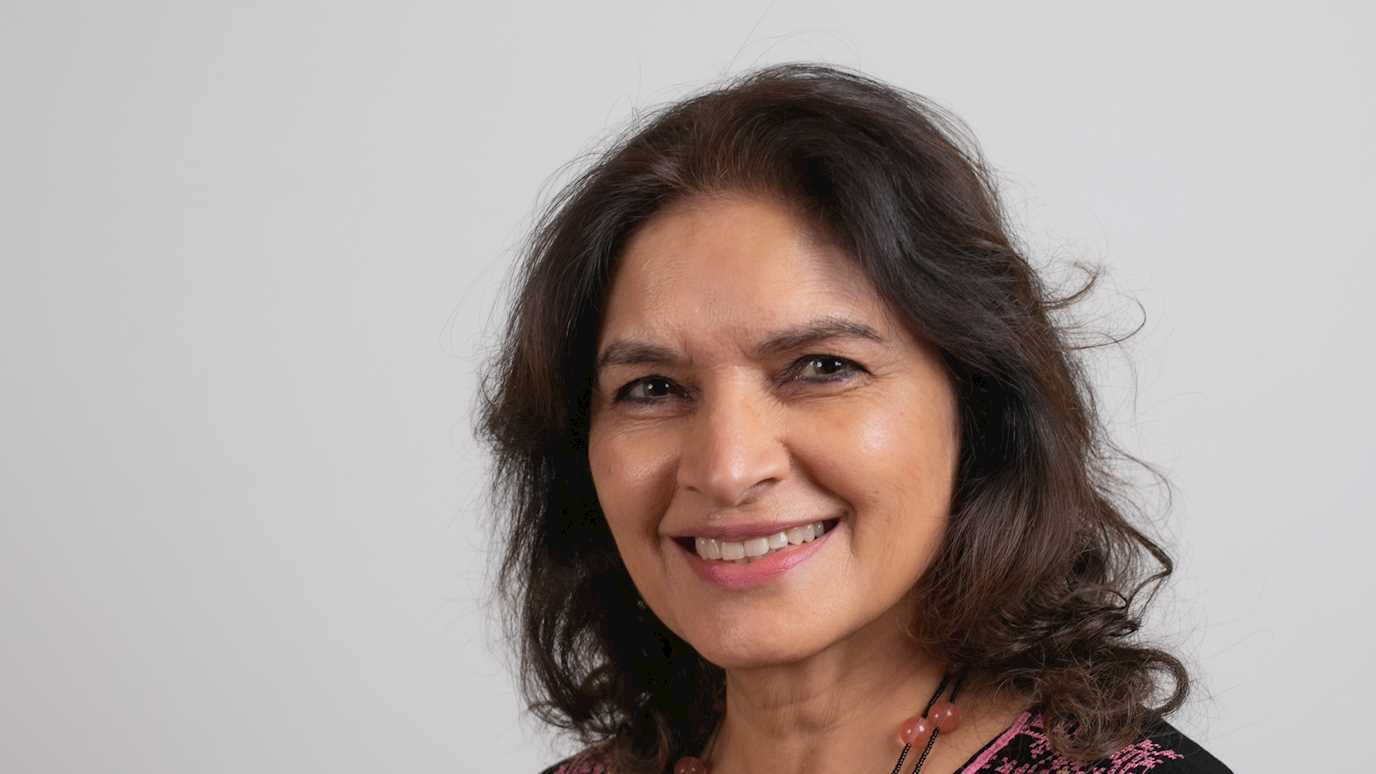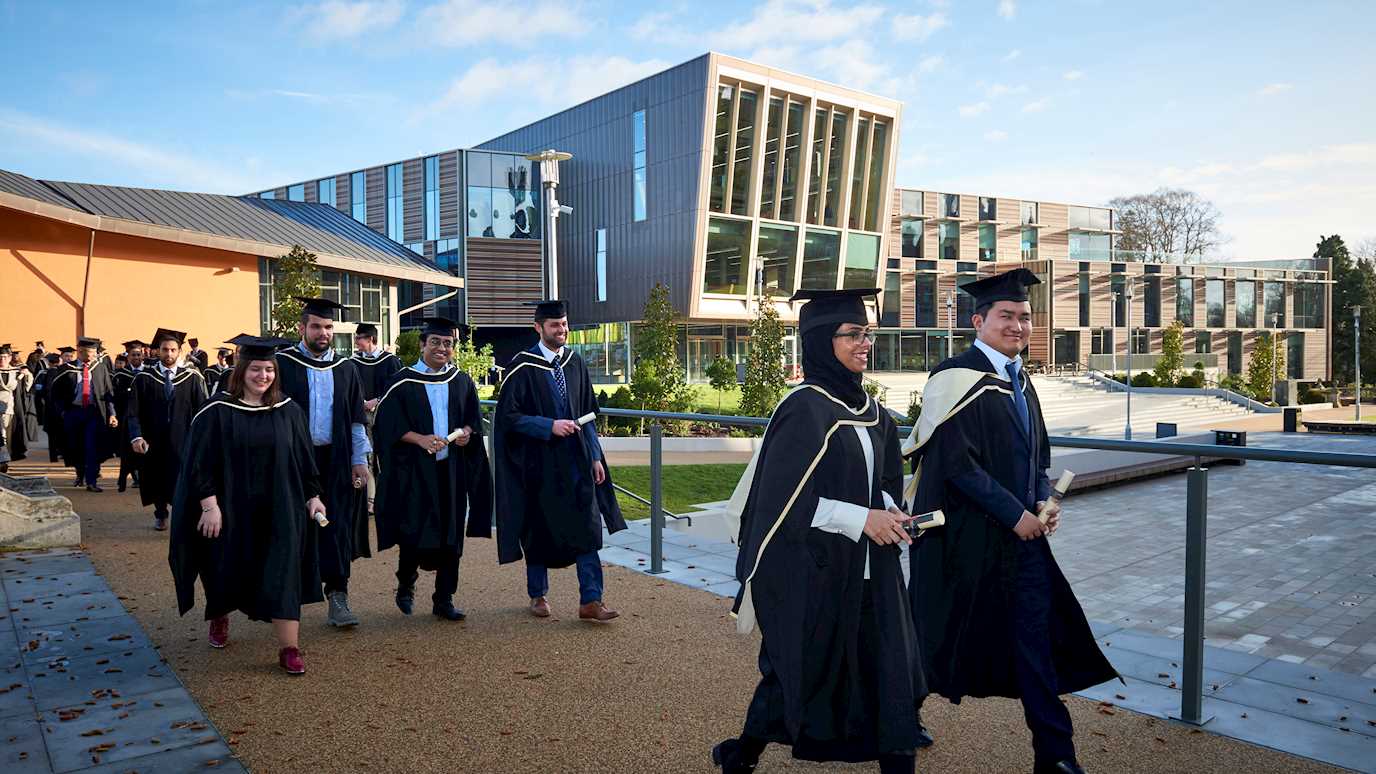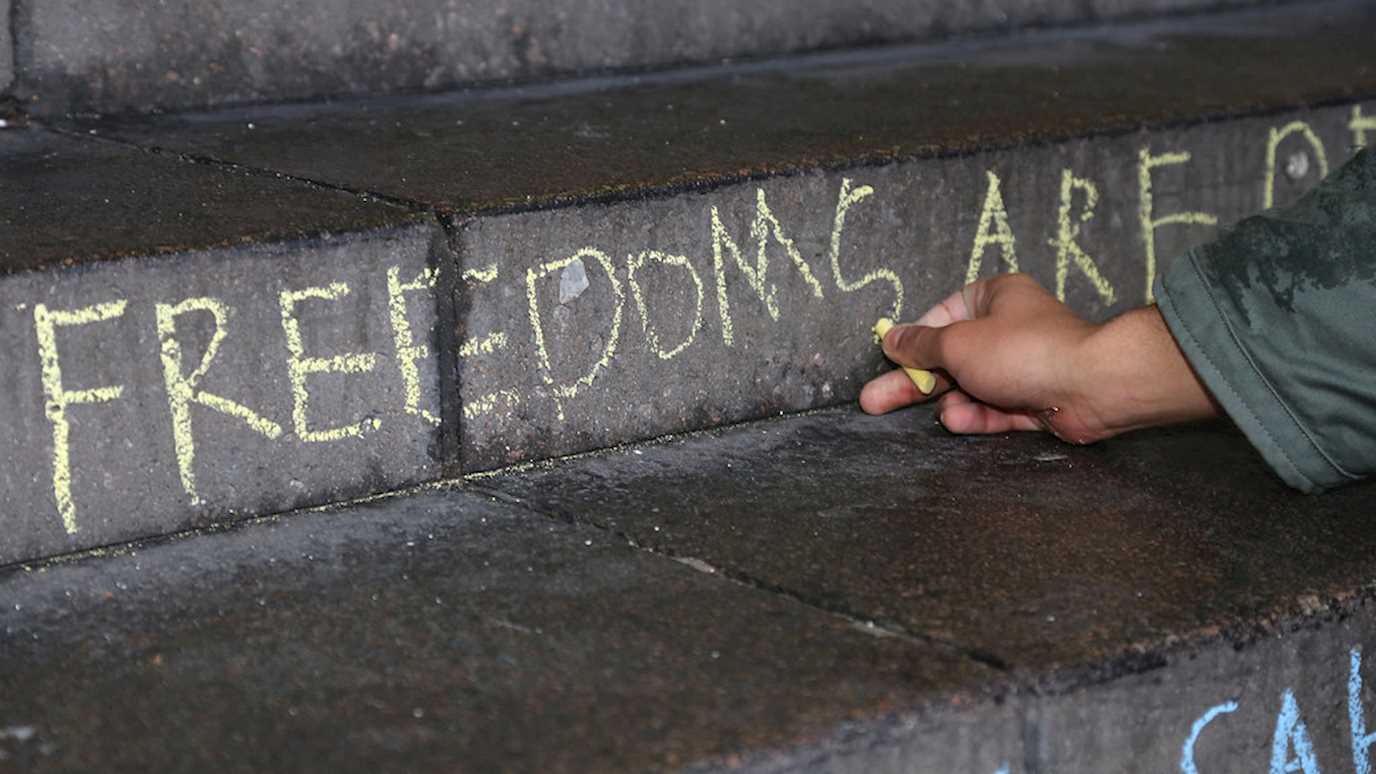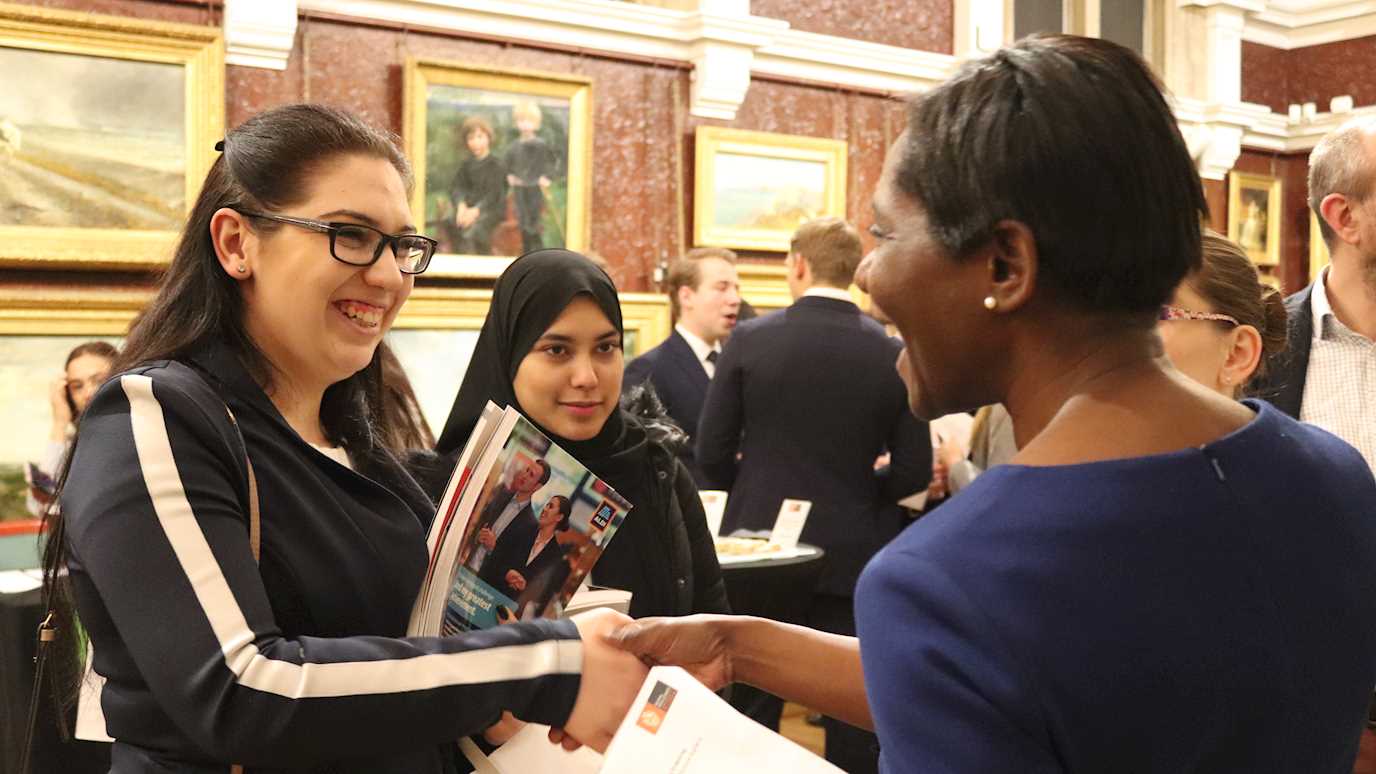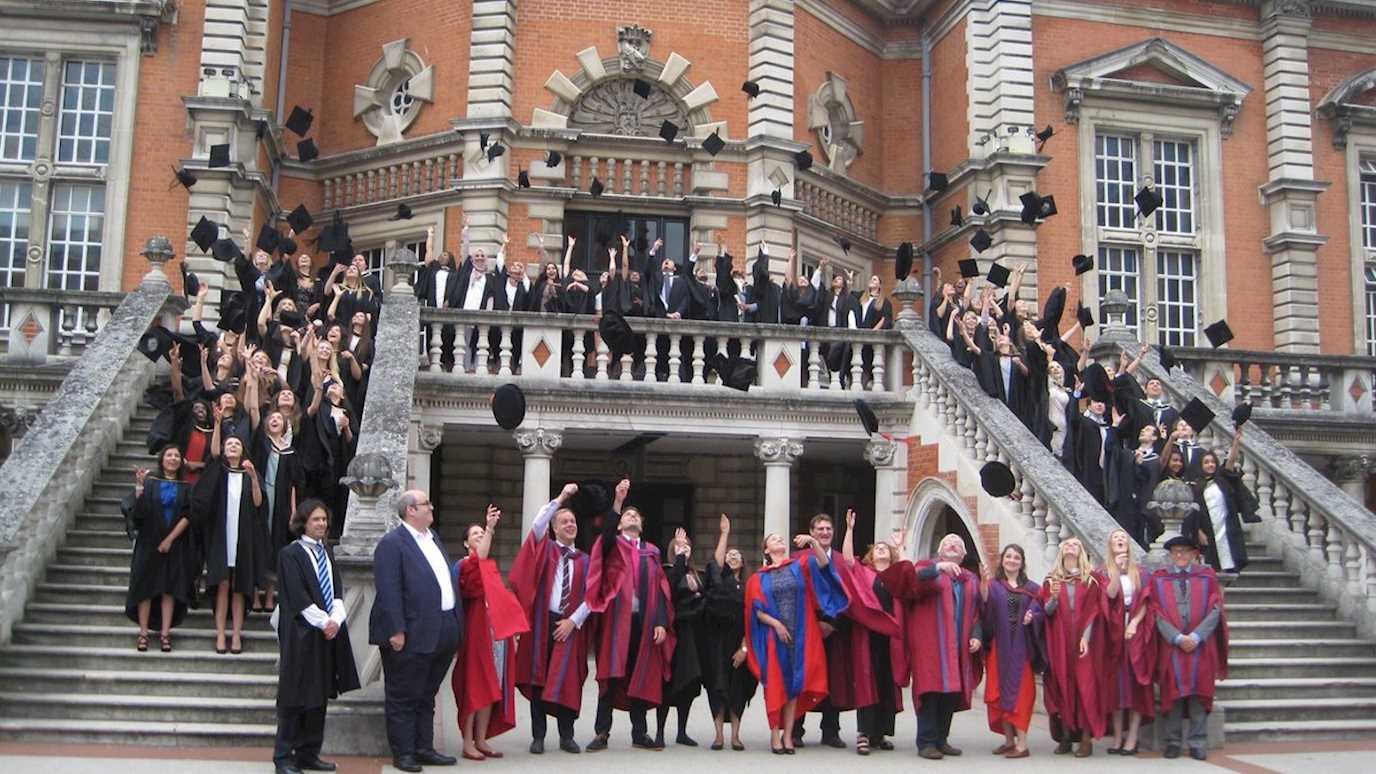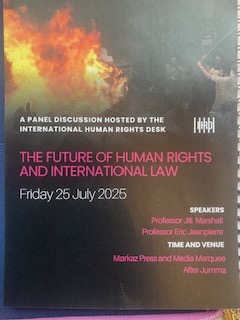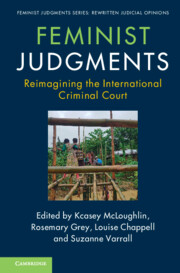The organisers were Elizabeth Pearson, Ieva Cechaviciute, and Akil Awan (History). Also in attendance were a team of student helpers: PGR, UG and Masters students. In this blog our MSc Terrorism and Counter-Terrorism Studies Student helpers Camara Barry, Lucy Dodwell-Bennett and Mercedes Le Carpentier reflect on what they learned from the event, ahead of their dissertation submissions at the end of August.
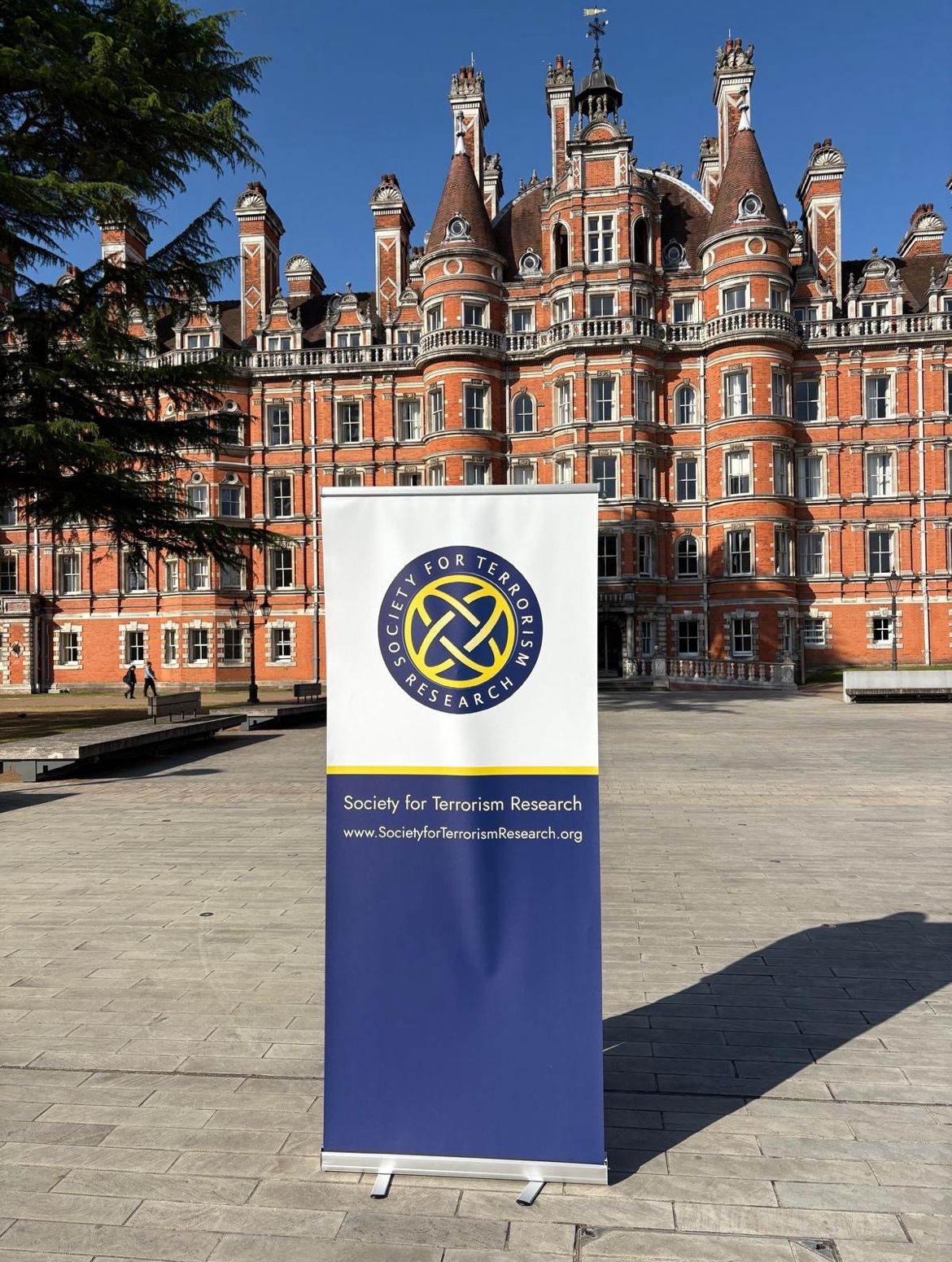
The Annual International Society for Terrorism Conference is hosted by a different university each year. This year we were excited to hear that one of our lecturers, Dr. Lizz Pearson, was leading the team bringing STR to Royal Holloway. We were keen to be able to contribute, answering questions, manning reception and carrying roving microphones. We were also very keen to see as many panels of cutting-edge research as we could, and take notes for our upcoming dissertations. This blog is the result of our reflections on those notes.
The conference opened on a date of profound significance—the 20th anniversary of the 7/7 London bombings in which 52 people died in a series of coordinated suicide attacks.
The timing felt auspicious, reminding conference participants of both how far counterterrorism efforts have come and how urgent the challenges ahead remain. It provided a thoughtful frame for the two-day programme: reflection anchored in remembrance, but firmly focused on innovation, prevention, and transformation. The event also firmly centred victims, with a powerful address by Victims Advocate and Terrorism Surivor, Travis Frain, “20 years since 7/7: Resilience in Unity and the Human Cost of Terrorism”.
Youth Radicalisation
The day began with a keynote address, Protect Yourself – Lessons From Counter Terrorism, by former Metropolitan Police Assistant Commissioner Neil Basu, who was also for six years the National Counter Terrorism Lead in the UK. He spoke with authority and urgency about the rising trend of youth radicalisation—particularly in the UK. He highlighted the role of social media, misogyny and the isolating effects of the COVID-19 pandemic as key accelerants. Drawing on years of experience in counterterror policing, Basu made a powerful case for a whole-society response: one grounded in education, trust-building, and community engagement, rather than relying solely on enforcement. Cohesion and resilience, he argued, must be cultivated from within. An important part of that, he said was the Prevent strategy, the controversial community-based approach to radicalisation.
The panel on Children, Young People & Terrorism explored the ethical and legal dilemmas surrounding youth involvement in terrorism. Dr. Gina Vale of Southampton University examined how a child’s maturity may influence whether they are treated as perpetrators or victims under the law. Two children of the same age might be judged differently—one as lacking the maturity to understand their actions, the other as having acted with malicious intent. Such divergence raises vital questions about consistency and fairness in sentencing.
The panel also grappled with the concept of agency—when and to what extent children should be considered responsible for their actions. If adults can be radicalised, manipulated, or coerced, then how should we evaluate the accountability of young people in similar circumstances? Historical comparisons added dimension, as audience members noted that prior to 2016, the UK adopted more welfare-based approaches for youth offenders. The current trend toward custodial sentencing stands in stark contrast to practices in other European countries that continue to emphasise rehabilitation over punishment.
Change and Rehabilitation
Another key theme was how not just to prevent terrorism, but how to rehabilitate terrorists. In the Radicalisation, Deradicalisation, and Rehabilitation panel, several presenters offered fresh perspectives on transformative change. Dr. Jonatan Kurzwelly of the Peace Research Institute Frankfurt unpacked the psychological mechanisms of induced hypocrisy—how cognitive dissonance, when skillfully prompted, can create openings for ideological reflection. Andrea Hall from His Majesty’s Prison and Probation Service (HMPPS) introduced the Healthy Identity Intervention Model of Change, a novel programme designed to help individuals rebuild a resilient sense of identity. Though independently presented, discussions later highlighted shared principles between the two approaches, particularly around how psychological tension can be used to drive deradicalisation.
Our own Professor Andrew Silke, who took the class on Transnational Organised Crime last term, and also teaches the Psychology of Terrorism, offered a fascinating glimpse into his ongoing research on Just World Beliefs—the idea that people get what they deserve—which appears to be disproportionately strong among terrorist offenders. These beliefs may reinforce ideological rigidity or support moral disengagement, and Silke’s findings open up new pathways for understanding how worldviews shape violent behaviour.
Another of our lecturers, Dr. Anthony Richards, later explored the semantics of terrorism itself. His presentation stressed the need to separate ideological goals from operational methods when defining extremism. Richards proposed a revised framework—one that distinguishes radical ideas from the actionable intent that drives harm—allowing for more precise legal and operational responses.
In the Risk Assessment panel, Margarida Damas from Innovative Prison Systems focused on newly released individuals as especially vulnerable to radicalisation due to precarious post-release environments. She highlighted the utility of tools such as TVRAT for assessing risk. Rizka Antika from the University of Leeds shared research on Islamic State (IS) returnees, showing that deportees tend to pose a greater risk than voluntary returnees. The latter group often disengaged ideologically before returning, whereas deportees may retain more extreme views due to lack of personal agency in their return.
How We Remember
The conference closed with an engaging academic lecture by Professor Charlotte Heath-Kelly, of Warwick University, who examined the evolution of memorialisation practices since 9/11. Moving away from monumental, state-led commemorations, today’s acts of remembrance are increasingly personal, decentralised, and digital. Heath-Kelly offered a timely reminder of how memory lives and adapts—both online and in collective consciousness—and how it continues to shape our societal response to terrorism.
Across two days of vibrant exchange, the conference offered a vital space to confront contemporary challenges, reflect on past lessons, and shape future policy. The perspectives shared—from policing to rehabilitation to remembrance—affirmed the need for thoughtful, multi-layered responses to terrorism and extremism.
Key themes that emerged across the panels included:
- The urgent need for clearer and more comprehensive training for all stakeholders, including practitioners, law enforcement, and the general public
- The imperative to prioritise public safety and counter-extremism over commercial interests, with greater collaboration between government and private sector actors
- The evolving threat landscape in the digital realm, where AI technologies, online communities, and the spread of misinformation/disinformation present new risks
All in all, too many interesting themes for just one blog.
What was clear was that as terrorism continues to adapt, so must our understanding and our response. This conference proved that informed dialogue is not just useful—it’s indispensable. We were extremely happy to have been part of this.
Camara Barry
Lucy Dodwell-Bennett
Mercedes Le Carpentier
MSc Terrorism and Counter Terrorism Studies Cohort 24-5
And thanks go to all the STR student helpers who also included: Lea Brost, Ruby Bashir, Kat Osborne, Euan Miller, Tom Brough and Henry Snowball, and to Rachel Monaghan and João Da Silva of STR.







